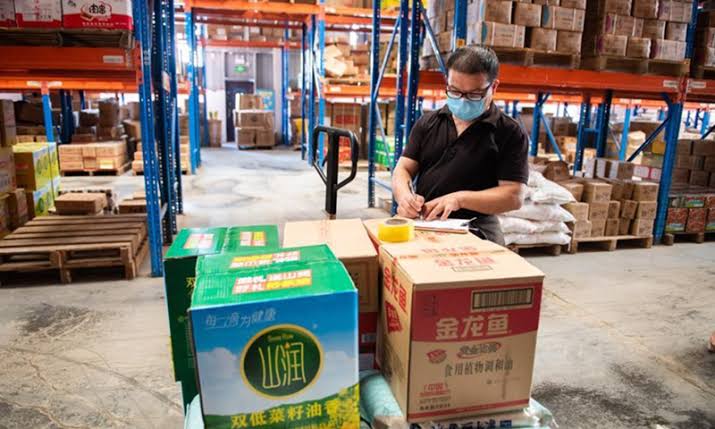Indonesia bans exports of palm oil to China

Indonesia has announced a ban on exports of palm oil to China, the most widely used vegetable oil, further raising global edible oil prices amid inflation due to the Russia-Ukraine conflict. Industry insiders said on Sunday that as the world’s second-largest palm oil importer, China is likely to face immediate short-term supply difficulties if the ban continues and will face acute shortage in the long run.
Shanghai-based grain wholesale and retail industry insider Chen Hao said that palm oil is the world’s most consumed edible oil in industry with the highest trade volume.
Domestic prices for soybean oil, peanut oil and colza oil will also start rising steeply because even though overall demand remains normal, palm oil, a major source of supply, is declining in volume available.
China imported 258,300 tons of palm oil from Indonesia and 242,800 tons from Malaysia in the first quarter of 2022, accounting for about 52 percent and 48 percent of China’s total import, respectively, according to Chinese commodities trading information site mysteel.com.
Indonesia’s President Joko Widodo said the ban was issued to secure domestic food supplies as two large grain exporters, Russia and Ukraine, are locked in conflict. In October 2021, Widodo announced that exports of raw palm oil might be banned at “some time in the future.”
The impact of the ban on China’s edible oil prices will be obvious within a very short term, and costs will surge for downstream users such as food production and processing. The impact will last for long.
Only help will be from the normal operations of China-Russia trade in colza oil, and peanuts imported from the US under bilateral trade agreements, to ease the current tension.
Peanut oil is the major substitute for palm oil in China. To secure the country’s food security, Northeast China’s Heilongjiang Province announced on Saturday that the province planned to enlarge the planting area of peanuts to exceed 10 million mu (666,666.67 hectares), increasing output by 2.6 billion jin (1.3 billion tons) in 2022.
The gap of palm oil supply will definitely raise the demand for peanuts. Relevant authorities such as China Grain Reserves will release peanut reserves if the price rockets out of the market’s acceptability.
Aside from securing supplies at home, Indonesia also aims to cement its global position as an exporter of crucial commodities. Indonesia’s export ban on palm oil to China is to protect its domestic oil processing industry, the same purpose as its nickel ore export ban. In early 2022, the Southeastern Asian country also banned exports of coal and nickel ore.



